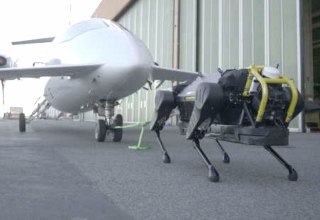Locomotion strategies for quadruped robots

Legged robots are mainly designed to traverse unstructured environments where wheeled robots have limited mobility. Their applications range from nuclear decommissioning to mining, search and rescue, inspection and surveillance. In addition, they can be applied to flank human workers (or collaborate with them) in order to reduce labor accidents, as well as in elderly care. The next generation of legged robots are envisioned to operate either autonomously or semi-autonomously (through tele-operation) over uneven terrains. This requires the rejection and compensation of disturbances, the exploitation of visual feedback, and the ability to manipulate both fragile and heavy objects. The main ingredients for legged locomotion are planning, control, perception and state estimation. Numerical optimization is a promising tool for motion planning and control for legged robotic systems in complex geometry environments (e.g. multi-contact scenarios) because it enables to push the machine up to the performance limits.
Indeed, when the complexity of the terrain increases, or when the execution of the requested task involves highly dynamic motions, numerical optimization and machine learning strategies are needed to automatically find feasible trajectories and control actions that could not otherwise be determined. In this seminar I will mainly focus on the planning aspects and on different strategies to achieve effective locomotion across complex terrain.
